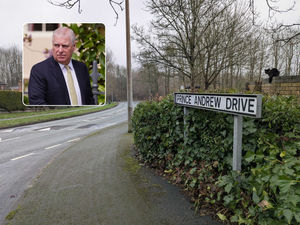Concerns raised in Telford over deadline for Afghan families to leave hotels
Concerns have been raised over Government plans for Afghan families to leave hotels by the end of August.
According to the Local Government Association (LGA), thousands of Afghan individuals and families staying in 59 temporary bridging hotels across the country have been served notice to leave the accommodation by the end of next month.
That number includes six families in Telford & Wrekin, who will have to find their own housing by the end of August.
Around 8,000 Afghans have been housed in hotels across the country since they were evacuated from Afghanistan when the Taliban took control in 2021.
The Government says hotels have never been a suitable place for refugees to stay in the long-term, and that it is funding a £250m expansion of the Local Authority Housing Fund to help councils source appropriate housing for those affected.
Both the LGA and Telford & Wrekin Council have voiced concern about the Government deadline.
The LGA said there is a risk of Afghan families becoming homeless and ending up in temporary accommodation due to a shortage of available housing.
A statement from the organisation said: "It is good that government has responded to the LGA’s call for additional funding and provided councils with £35 million of new money to support this case working in hotels and to fund potential homelessness demand.
"A second Local Authority Housing Fund round of £250 million has also launched with a focus on helping councils source homes to house Afghans."
However, it added: "The acute shortage of housing available across the country and short timeframe until the end of notice periods is making the ability to quickly secure appropriate accommodation for all Afghan families in bridging hotels extremely challenging.
"Councils are increasingly concerned that many will end up needing homelessness support if families – some of whom are vulnerable and include children – fail to find properties or refuse the offer they receive."
It continued: "There must be better engagement with councils and the Home Office must take proper account of local concerns and impacts. A genuine partnership is urgently needed with local government to better plan how to meet our pressing housing needs in the short and the long term across all asylum and resettlement schemes."
New LGA chair Councillor Shaun Davies, the Labour leader of Telford & Wrekin Council, in his first speech at the LGA's annual conference today, was expected to say: "Councils have a proud history of stepping up and supporting asylum seekers and refugees to settle in the UK and rebuild their lives. But combined pressures from government asylum and resettlement schemes are growing on councils. We are at crisis point.
“We want to work with the Government to get this right. Not just in a way that best supports the people arriving in the UK but also tackles the unsustainable pressures on our local services and on our communities.”
Councillor Kelly Middleton, Telford & Wrekin Council’s cabinet member for healthy, safer and stronger communities and partnerships, also said they were concerned at the deadline.
“We now have one hotel in Telford and Wrekin that is being used as a bridging hotel by the Home Office to provide temporary accommodation for Afghan refugees," she said.
"This is currently housing six families whilst Telford & Wrekin Council support them to find their own accommodation, as we have since bridging hotels were put into use by the Home Office.
“The Home Office have also commissioned, without our agreement, other hotels for immigration cases. This type of temporary housing is not good for those being housed in the hotels or the local economy as it means hotels are not being used for other leisure, business or sporting events.
“The council is concerned by the government deadline, which means those in hotels will be diverted into already under pressure temporarily housing at the council's cost.”
Reacting to the concern, a Government spokesperson said: “Hotels are not, and were never designed to be, long-term accommodation for Afghans resettled in the UK and it is not in their best interests to be living in hotel accommodation for months or years on end.
“That is why we have announced a plan, backed by £285 million of new funding, to speed up the resettlement of Afghan nationals into long-term homes. Extensive government support is available and we will continue to do all we can to help Afghan families as they rebuild their lives here.”





